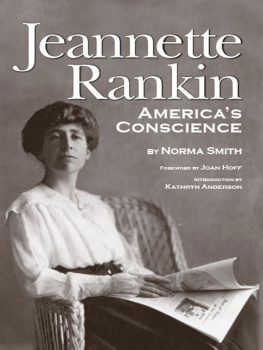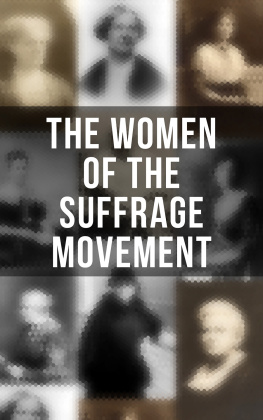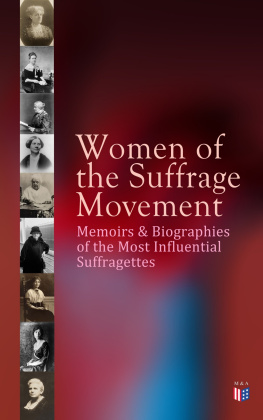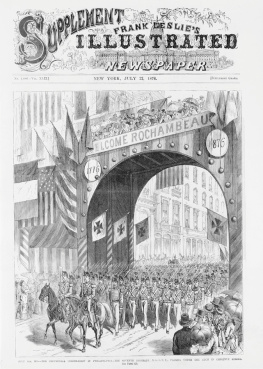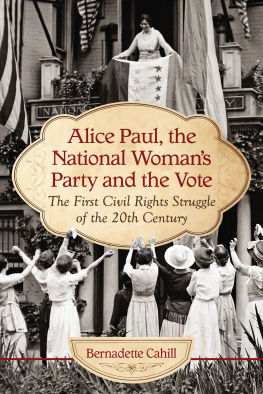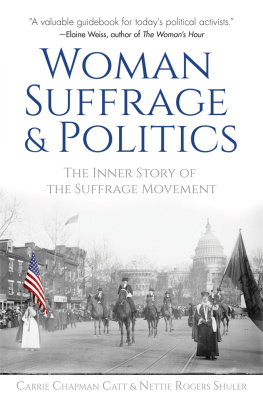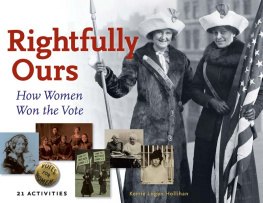Jeannette Rankin
A MERICAS C ONSCIENCE

BY Norma Smith
FOREWORD BY Joan Hoff
INTRODUCTION BY Kathryn Anderson
Montana Historical Society Press HELENA
The publication of this book was supported by a grant from the Montana History Foundation.

BOOK DESIGN Arrow Graphics, Missoula
TYPESET IN New Baskerville
PRINTED IN THE U NITED S TATES OF A MERICA
Copyright 2002 by Montana Historical Society Press,
P.O. Box 201201, Helena, Montana 596201201. All rights reserved.
A portion of , First Congresswoman: Pacifist, appeared in a slightly different version as The Woman Who Said No to War: A Day in the Life of Jeannette Rankin, Ms. Magazine , March 1986.
12 13 14 15 16 17 18 19 20 11 10 9 8 7 6 5 4 3
ISBN 978-0-917298-79-0
L IBRARY OF C ONGRESS C ATALOGING-IN -P UBLICATION D ATA
Smith, Norma, 19132001.
Jeannette Rankin, Americas conscience / by Norma Smith; foreword by Joan Hoff; introduction by Kathryn Anderson.
p. cm.
Includes bibliographical references and index.
ISBN 0917298799 (alk. paper)
1. Rankin, Jeannette, 18801973. 2. PacifistsUnited StatesBiography. 3. LegislatorsUnited StatesBiography. 4. FeministsUnited StatesBiography. I. Title.
HQ1413.R36 S65 2002
328.73'092dc21
2002003321
Contents
I T IS A GREAT PLEASURE to see Norma Smiths biography of Jeannette Rankin finally published, and my heartfelt thanks goes to the staff at the Montana Historical Society who edited this final version. I corresponded with Smith from the mid-1970s to the mid-1980s as she struggled to revise her manuscript and find a publisher. During this time we exchanged research notes and other material about Rankin, visited by phone and in person, tried to locate missing Rankin papers from a resident of Great Falls who had obtained them when Jeannettes brother Wellington closed his law office in Helena, collaborated on several video projects about Rankin, and in general critiqued each others work about this remarkable congresswoman from Montana.
As a personal friend of Jeannette Rankin, Smith was filled with invaluable anecdotes and insights into the life and times of the only person to vote against both world wars. Her comments on a talk I gave at the 1977 Montana History Conference on the importance of Rankins foreign policy views for post-Vietnam American diplomacy helped me revise an article I later wrote in 1980 for Montana The Magazine of Western History . Likewise, her comments about an encyclopedia article I was writing clarified my views about Rankins problematic relationship with both the early-twentieth-century womans movement and the second wave feminists of the 1960s and 1970s.
According to Smith, Rankin did not consider it appropriate to comment publicly on the Equal Rights Amendment, which had been introduced in Congress in 1923 but not officially approved and sent to the states for passage until the year 1972a year before Rankin died. While Rankins association in the 1920s with the faction of the womans movement opposed to the ERA may have reflected her views, I believe she was sympathetic [to the ERA], Smith wrote me in 1984, but of course she thought any other issues subordinate to that of peace. Smith further thought that Rankin was rather ambivalent toward the womans movement in the 60s. She felt that many of them were upper-middle-class women who were too much interested in their own egos, money, and status. She was rather disagreeable to some of them. On their part, too, they behaved rather badly, treating her like a treasured antique suitable to put on the shelf and admire, as many young people treat the elderly, who they suppose are incapable of understanding the issues of today. I myself saw instance[s] of this. So there was some friction between JR and some of the womens [movement] leaders.
We also often discussed Rankins personality and her memories and interviews toward the end of her life. While I initially thought that Rankins desire for the limelight knew no bounds, Smith correctly noted that she always put bounds, those of the cause, on her vanity, sacrificing herself frequently. She certainly had her fair share, perhaps more, of vanity and love of flattery; but this trait is fairly common in public figures, for obvious reasons. Smith also realized that because Rankin had been interviewed all her life, and knew how to put her best foot forward, toward the end of her life she simply began to forget details and so performed less well in public. Unfortunately, in the late 1960s she was frequently interviewed and frequently her memory failed her. As a result, Smith relied less on these interviews than other biographers.
Smith had an abiding faith in the importance of Jeannette Rankins contributions to pacifism and feminism, and she understood better than anyone else who has written about Rankin that her commitment to the cause of peace and equality grew steadily throughout her long life. Beginning in the teens as a participant in the progressive, peace, and suffrage movements, Jeannette Rankin served her country for over fifty years, in the words of one admirer, as a gallant warrior for peace and justice.
In May 1985 the State of Montana donated a statue of Jeannette Rankin to the National Statuary Hall Collection for display in the Capitol in Washington, D.C. The other Montanan so honored is, of course, Charles M. Russell, the noted western artist. Some may think it odd that Montanans have chosen an artist and a pacifist to represent their state, but the choice makes more sense when one recalls the records of Montana senators Thomas J. Walsh, Burton K. Wheeler, Lee Metcalf, and Mike Mansfield. Although none of these men were committed pacifists in the Rankin tradition, they were all, like Rankin, rebels and reformers and, on occasion, opposed war.
The Rankin statue at the Capitol honors the contributions of this singular twentieth-century woman even as it disguises how controversial she was during her lifetime. Smiths biography extends our understanding of both the controversy Rankin generated and the contributions that she made because of it. This long-overdue book is a testament to both Smiths and Rankins perseverance. I am grateful for both. I only wish that Norma were alive to appreciate its publication as much as I do.
J OAN H OFF
Research Professor of History
Montana State University, Bozeman
J EANNETTE R ANKIN suffragist, congresswoman, and peace activistbegan sharing her life story with Norma Smith in 1963. Inspired by Rankins unwavering crusade for social justice and peace, Smith (19132001) wrote this biography in the 1970s, tracing Rankins history from her girlhood in Missoula, Montana, through her work on womans suffrage, to her historic antiwar votes in both 1917 and 1942 and her lifelong opposition to war. As Smith proceeded, growing interest in womens issues and antiwar sentiment confirmed her commitment to the projects historical significance. As another generation struggles with issues of national security and human rights, the Montana Historical Society Press offers this posthumous publication of Smiths richly detailed story: Jeannette Rankin, Americas Conscience .

